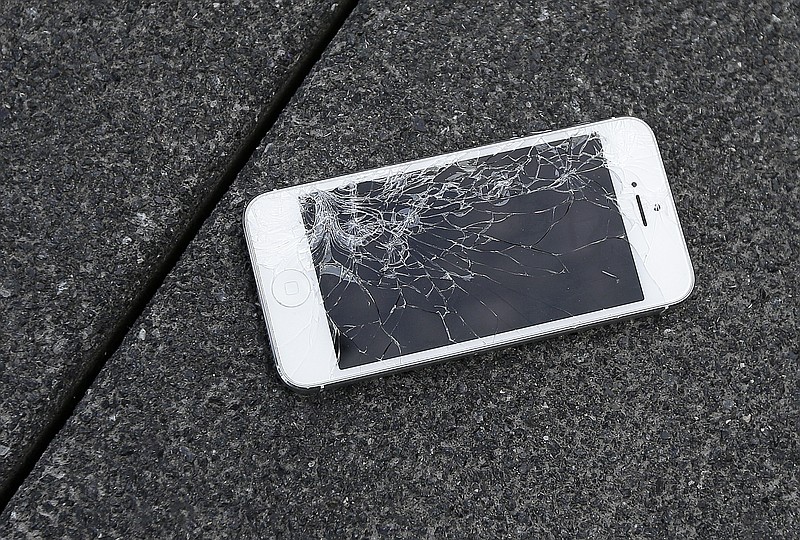WASHINGTON (AP) — Americans would be freer to repair their broken cellphones, computers, videogame consoles and even tractors themselves, or to use independent repair shops, under changes being eyed by federal regulators.
The regulators maintain that restrictions have steered consumers into manufacturers’ and sellers’ repair networks or led them to replace products before the end of their useful lives.
As the Federal Trade Commission and the Biden administration see it, that raises issues of anti-competitive conduct.
The FTC is moving toward writing new rules targeting the restrictions. On Wednesday, the five FTC commissioners unanimously adopted a policy statement supporting the “right to repair” that pledges beefed-up enforcement efforts and could open the way to new regulations.
“These types of (repair) restrictions can significantly raise costs for consumers, stifle innovation, close off business opportunity for independent repair shops, create unnecessary electronic waste, delay timely repairs and undermine resiliency,” FTC Chair Lina Khan said. “The FTC has a range of tools it can use to root out unlawful repair restrictions, and today’s policy statement would commit us to move forward on this issue with new vigor.”
The policy statement commits the agency to prosecute repair restrictions that violate current antitrust or consumer protection laws. A 1975 law, for example, requires that if a product has a warranty — which is not mandatory — the warranty must avoid using disclaimers in an unfair or deceptive way. It also prohibits tying a warranty to the use of a specific service provider or product, unless the FTC has issued a waiver in that case.
Unavailable parts, instruction manuals and diagnostic software and tools, product design restrictions and locks on software embedded in devices have made many consumer products harder to fix and maintain, regulators and industry critics say. Do-it-yourself repairs often require specialized tools, hard-to-obtain parts and access to diagnostic software that’s guarded by manufacturers.
The repair restrictions often fall most heavily on minority and low-income consumers, the regulators say. An FTC report to Congress in May noted that many Black-owned small businesses make equipment repairs, and repair shops often are owned by entrepreneurs from poor communities.
For minority and low-income consumers, the repair restrictions are especially acute for cellphones, the report says. Those consumers often have cellphones but no broadband access for computers at home, increasing their dependence on the phones.
Industry critics say the coronavirus pandemic worsened the effects of repair restrictions for all consumers as computers became essential for working remotely, schooling children at home and visiting relatives on screens — while many large chain stores stopped offering on-site repairs.
Allowing consumers to make their own repairs “saves money, and it keeps electronics in use and off the scrap heap,” says Nathan Proctor, a director of U.S. Public Interest Research Group’s right-to-repair campaign. “It helps farmers keep equipment in the field and out of the dealership,” Proctor said in a recent statement. “More repair choices will protect the environment by cutting down on the amount of new electronics we make and old stuff we toss.”
Manufacturers, on the other hand, maintain that repair restrictions are needed to safeguard intellectual property, protect consumers from injuries that could result from fixing a product or using one that was improperly repaired, and guard against cybersecurity risks. Manufacturers say they could face liability or harm to their reputation if independent repair shops make faulty equipment repairs.
New right-to-repair laws and regulations “would create innumerable harms and unintended consequences for consumers and manufacturers alike, including by limiting consumer choice, impeding innovation, threatening consumers’ safety and wellbeing, (and) opening the door to counterfeits,” the National Association of Manufacturers said in a prepared statement.
Legislation to ease repair restrictions is active in about 25 states, and the European Community also is considering new right-to-repair regulations.
The repair directive was included in President Joe Biden’s sweeping executive order issued earlier this month targeting what he labeled anti-competitive practices in tech, healthcare, banking and other key parts of the economy.

